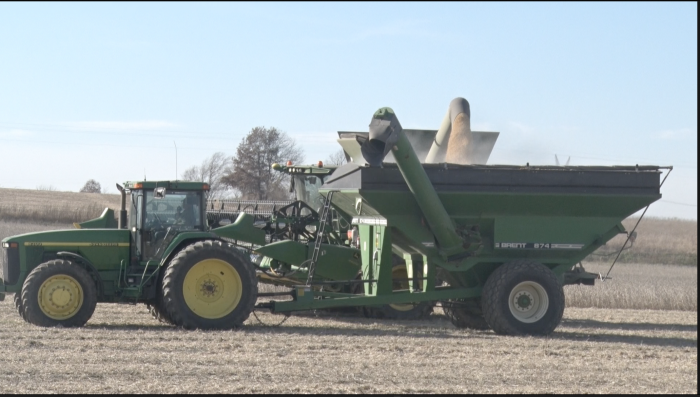Farming is risky business and for some, their livelihood is at stake. With each new year of harvest brings renewed fear for farmers.
Farming is risky business and for some, their livelihood is at stake. With each new year of harvest brings renewed fear for farmers.
Weather extremes happening globally are damaging to crops. When the temperature changes drastically within a short amount of time, crops get ruined. Difficult harvesting times are sometimes related to inconsistent weather and climate change.
“The more extreme weather you get, the more likely you are going to have agricultural losses and negative impacts on agriculture, and we’re seeing that today already,” said Justin Maxwell, an Indiana University climate and weather professor. “We’re going to keep seeing that increasing trend until we do something about it. I think we’re capable and I think countries can unite to help fix the issue or bring awareness to it,” Maxwell said.
Tim Abbott, a farmer from Lyons, Indiana grows soy beans and corn. He said that farming is not what it once was. “The spring is a little bit cooler than it used to be and eventually when the heat hits, it hits hard. The heat generally narrows our window for planting and then it seems like the July and August heat and lack of rain is more common than it used to be,” Abbott said.

Some may relate the issue of weather affecting agriculture on climate change or global warming. James Farmer, another Indiana University agriculture professor, says that there is evidence of climate change and he believes it is influencing agriculture. “If you look at the models when it comes to climate change, there are certain areas that will be forced to grow different crops. I think we will definitely see changes in the types of crops that are grown in different places,” said Farmer.
Tim Abbott, relies heavily on weather to successfully harvest his crops. If the weather is drastically changing, Abbott and his crops learn to adapt. “We used to be able to grow corn up until that May 10th window that I was talking about before yield drag… Now it seems like we have a 7 day window to get our corn planted by May 7th.” Abbott said. “I feel like we’re going to maintain the way we have. We’re going to adapt just like the weeds have adapted, just like the plants have adapted.”
Abbott altered his farming recently by doing away with his wheat harvest. He explained he was putting too much money into the crop, and not getting enough out of it. The wheat harvest relied too heavily on the weather to maintain.
Indiana is not the only location having issues with farming this year. For example, Italy is having a hard time harvesting olives. In places like Georgia, peaches, their main crop and what they are known for, are becoming troublesome to harvest. The warm winters are dangerous for Georgia farmers (see below).
https://twitter.com/KSJatMIT/status/912036468859817986
Farmers in Georgia Struggle to Grow Their Peaches
“The joke is that farmers always complain about the weather,” Maxwell said, “but it’s because they’re really in tune with their crop and the extreme weather is never good for farmers, they prefer stable weather.”
Bob Nielsen, a Purdue University agriculture professor, believes that one way or another, farmers will get their crops out of the ground sooner or later. “By farming’s very nature, folks have to be flexible,” he said, “because it’s always been a risky business.”